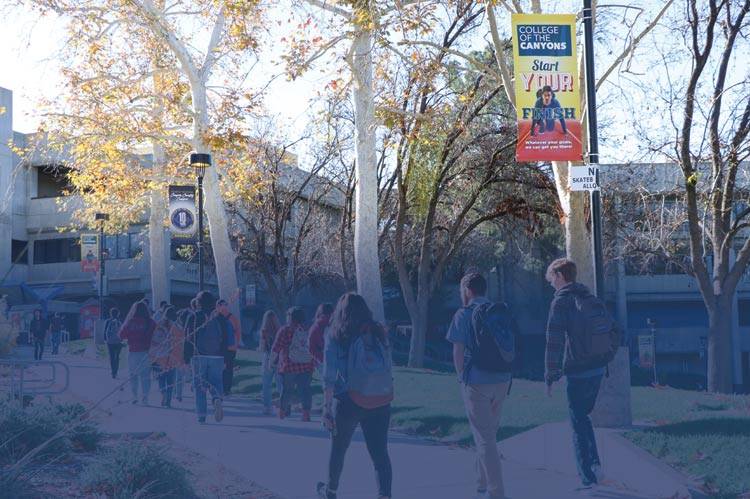Communication Studies Curriculum
Click to learn about: 


![]()
 Courses in Communication Studies satisfy general education requirements for the associate degree and State university baccalaureate. Prepares students for transfer to four-year institutions and advanced degrees in communication, as well as refining essential communication skills needed in virtually every human interactional endeavor.
Courses in Communication Studies satisfy general education requirements for the associate degree and State university baccalaureate. Prepares students for transfer to four-year institutions and advanced degrees in communication, as well as refining essential communication skills needed in virtually every human interactional endeavor.
Communication is an event which is at once social, economic, political, cultural, and technological. In this way the course offerings in the department are designed to inquire into a variety of communication contexts, processes, skills, and effects reflecting the diversity of the field.
More information on the AA-T Degree and AA Degree can be found here.
![]()
105 FUNDAMENTALS OF PUBLIC SPEAKING
3 units 3 hours lecture weekly
Prerequisite: None
 A basic study of the dynamics and principles of oral communication with attention to clear and orderly presentation. Application thereof in presentation of the basic message unit, expository, convincing and activating speeches and group discussion.
A basic study of the dynamics and principles of oral communication with attention to clear and orderly presentation. Application thereof in presentation of the basic message unit, expository, convincing and activating speeches and group discussion.
![]()
![]() 100 PROCESS OF COMMUNICATION
100 PROCESS OF COMMUNICATION
3 units 3 hours lecture weekly
Examines the range of theoretical approaches to the field of communication studies which provide an overview of communication contexts such as interpersonal, small group, gender, intercultural, mass media, and organizational communication.
![]() 100H PROCESS OF COMMUNICATION - HONORS
100H PROCESS OF COMMUNICATION - HONORS
3 units 3 hours lecture weekly
Examines the range of theoretical approaches to the field of communication studies which provide an overview of communication contexts such as interpersonal, small group, gender, intercultural, mass media, and organizational communication. Additional reading, writing, critical thinking and research techniques are required in the honors section.
![]() 105H FUNDAMENTALS OF PUBLIC SPEAKING - HONORS
105H FUNDAMENTALS OF PUBLIC SPEAKING - HONORS
3 units 3 hours lecture weekly
Examines the principles and practices of public speaking. Emphasis is on speech organization and development, research, audience analysis, presentation skills, listening, and the use of language and ethics for the development of informative and persuasive speeches. Speech analysis and rhetorical criticism skills will differentiate COMS-105H from COMS-105.
![]() 120 SMALL GROUP COMMUNICATION
120 SMALL GROUP COMMUNICATION
3 units 3 hours lecture weekly
This course provides an opportunity to explore the process of groups and decision making through the practical application of theoretical concepts to a variety of group activities and public group discussion. Theories of group decision making and leadership will be explored.
![]() 150 ORAL INTERPRETATION
150 ORAL INTERPRETATION
3 units 3 hours lecture weekly
Prerequisite: Eligibility for English 090; recommended prerequisite or concurrently with Child Development 156 for Child Development Certificate student.
Introduction to and practice in the art of reading aloud for effective use of voice and movement according to the style, mood, meaning and emotion of appropriate literature. Students may select adult literature (option A) or children's literature (option B). Partially satisfies CSU General Education requirement.
![]() 190 FORENSICS
190 FORENSICS
2 - 4 units 1 hour lecture weekly
Lab hours to be arranged. May be taken 4 times for credit. Preparation for competitive speech team. Studies in argumentation and debate, informative and persuasive speaking, and extemporaneous and impromptu speaking. Involves research and one-on-one training. Requires participation in interscholastic competition or community
speakers bureau.
![]() 225 STRATEGIES OF ARGUMENTATION
225 STRATEGIES OF ARGUMENTATION
3 units 3 hours lecture weekly
Introduces the strategies used for rhetorical argument, including finding issues, using evidence, and detailing fallacies in rhetorical communication.
![]() 227 INTRODUCTION TO RHETORICAL CRITICISM
227 INTRODUCTION TO RHETORICAL CRITICISM
3 units 3 hours lecture weekly
Introduces critical methodologies of rhetoric and principles of rhetorical theory as a means to analyze and evaluate public discourse, including critical reasoning, advocacy, analysis, writing, and discussion.
3 units 3 hours lecture weekly
Analyzes intergenerational interaction and communication patterns throughout the lifespan, including the examination of theories, attitudes, stereotypes, myths, and cultural differences.
3 units 3 hours lecture weekly
Examines theories and topics within interpersonal communication, such as verbal and nonverbal communication, perception, self-concept, communication climate, relationship satisfaction, conflict, and self-disclosure within different communication contexts.
3 units 3 hours lecture weekly
Examines intercultural communication, including cultural patterns, verbal and nonverbal communication codes and their practical application in today's diverse society.
3 units 3 hours lecture weekly
Compares and contrasts the communication styles of males and females in a variety of settings and suggests ways to develop communication competence in gendered societies, including the areas of family, friendship, courtship and marriage, education, media, and business.
3 units 3 hours lecture weekly
Introduces students to the fundamental elements of communication in relation to leadership theories, ethics, styles, and perspectives, including the development of a personal philosophy of leadership that includes an understanding of self, others, and community. Prepares students for leadership roles in college and community.

 My Canyons
My Canyons  Canvas
Canvas 
